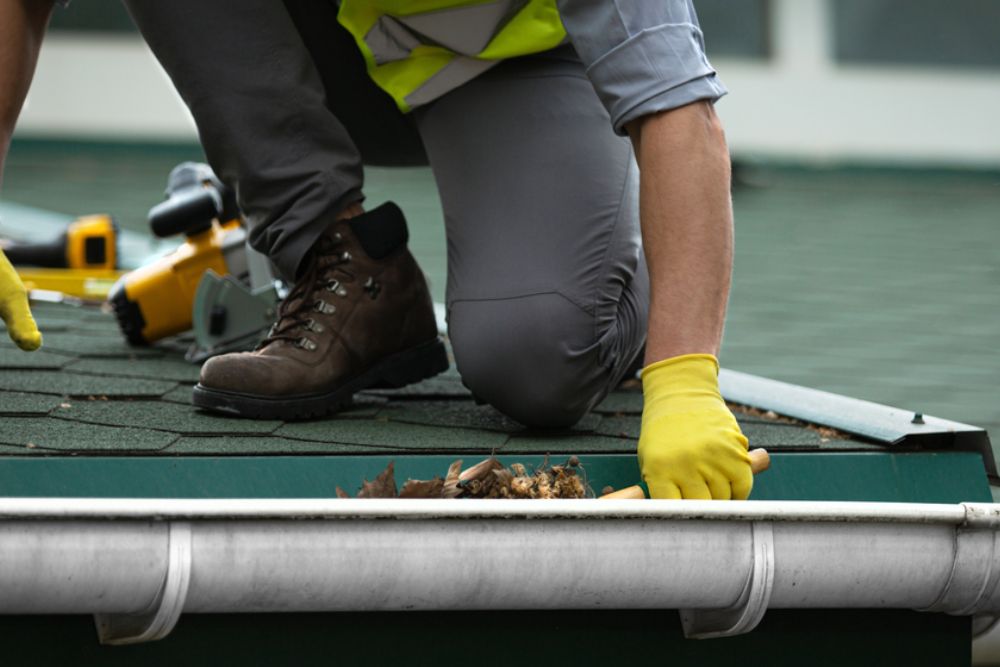Homeownership comes with its fair share of responsibilities, and one of the most important ones is home maintenance. While it may seem like an added expense, staying on top of regular maintenance can actually save you money in the long run. Small fixes and preventative measures can prevent costly repairs, extend the lifespan of your appliances, and reduce energy bills. If you're looking to save money and keep your home in great condition, here are some simple, effective home maintenance tips to help you achieve just that.
1. Change HVAC Filters Regularly
Your HVAC system works hard to keep your home comfortable, but if its filters are clogged with dust and debris, the system becomes inefficient. When the air can't flow freely through the filters, your system has to work harder, which can increase energy costs and shorten the lifespan of the unit.
- Tip: Change your HVAC filters every 1-3 months, depending on usage. If you have pets or live in a dusty area, consider changing them more frequently.
- Impact: Regularly changing your filters helps maintain airflow, reduces energy consumption, and ensures your system runs efficiently, ultimately saving you on energy bills and costly HVAC repairs.
2. Seal Gaps and Cracks to Prevent Heat Loss
Sealing gaps and cracks around windows, doors, and other openings is a simple yet effective way to reduce heating and cooling costs. Air leaks allow conditioned air to escape, forcing your HVAC system to work harder to maintain the desired temperature.
- Tip: Inspect your home for gaps, especially around windows, doors, and ducts. Use weatherstripping or caulk to seal these leaks. For a temporary fix, draft stoppers on doors can also help.
- Impact: By sealing air leaks, you reduce your heating and cooling costs by improving your home's energy efficiency. This simple task can lead to savings on your utility bills throughout the year.
3. Maintain Your Water Heater
Your water heater is one of the most essential and expensive appliances in your home to run. Without regular maintenance, it can become inefficient or even break down prematurely. Simple water heater maintenance can help prevent problems and extend its life.
- Tip: Flush your water heater annually to remove sediment buildup, which can affect its performance. Also, check the temperature setting on your thermostat. Keeping it around 120°F is optimal for energy efficiency.
- Impact: Regular water heater maintenance keeps it running efficiently, preventing costly repairs and lowering your energy consumption.
4. Check for Leaky Faucets and Pipes
Leaky faucets and pipes may seem like a minor issue, but over time, they can lead to significant water waste and increased utility bills. A single leaky faucet can waste up to 3,000 gallons of water per year.
- Tip: Fix leaky faucets and pipes as soon as you notice them. Use plumbing tape or call a plumber if needed. Additionally, regularly check for signs of leaks under sinks and behind appliances.
- Impact: Fixing leaks helps conserve water, reduce your water bill, and avoid more significant plumbing issues down the road, which can be expensive to repair.
5. Clean Gutters and Downspouts
Clogged gutters can cause water damage to your home’s foundation, roof, and siding. Leaves, twigs, and debris can block water from flowing freely, which leads to leaks, mold, and structural issues. Regularly cleaning your gutters prevents this costly damage.
- Tip: Clean your gutters at least twice a year—once in the spring and once in the fall. If you live in an area with many trees, you may need to clean them more frequently.
- Impact: Maintaining clean gutters prevents water damage to your home and saves you from costly repairs to your roof, foundation, and walls.

6. Inspect and Maintain Your Roof
Your roof is one of your home's most crucial elements, protecting you from the elements and keeping everything inside dry. Roof damage can be expensive to repair, so it’s important to catch issues early.
- Tip: Inspect your roof for missing or damaged shingles, especially after heavy storms. Clear debris from your roof and gutters, and ensure your roof’s flashing is secure around chimneys and vents.
- Impact: Regular roof inspections help you identify small issues before they become costly repairs. Preventing leaks or damage will also save you money in the long run.
7. Check Insulation in Attics and Walls
Proper insulation helps regulate your home’s temperature and reduces your reliance on heating and cooling systems. Poor insulation can cause your home to lose heat in the winter or cool air in the summer, increasing energy costs.
- Tip: Inspect your attic for adequate insulation and make sure there are no gaps. If necessary, add more insulation to ensure optimal energy efficiency.
- Impact: Good insulation reduces the strain on your HVAC system, lowers your energy bills, and ensures that your home remains comfortable year-round.
8. Maintain Your Appliances
Many household appliances, from refrigerators to dishwashers to washing machines, work more efficiently when well-maintained. Simple maintenance tasks can help extend their lifespan and reduce the risk of breakdowns.
- Tip: Clean your refrigerator coils, defrost your freezer regularly, and check your dishwasher's spray arms for debris. Also, run a maintenance cycle on your washing machine to keep it in good shape.
- Impact: Well-maintained appliances run more efficiently, use less energy, and are less likely to break down, ultimately saving you money on repairs and energy bills.
9. Use Energy-Efficient Lighting
Switching to energy-efficient light bulbs like LEDs can save you a significant amount of money on your electricity bill. LED bulbs use less energy and last much longer than traditional incandescent bulbs.
- Tip: Replace old incandescent light bulbs with LED bulbs in your home. Although they have a higher initial cost, they use less energy and last much longer, making them a cost-effective choice in the long run.
- Impact: By using energy-efficient lighting, you'll reduce your electricity costs and contribute to a more sustainable, eco-friendly home.
10. Service Your HVAC System Regularly
Your HVAC system requires regular servicing to keep it running efficiently. An annual inspection by a professional can identify potential issues early on and keep your system in top condition.
- Tip: Schedule an annual HVAC inspection and servicing, including cleaning the system, checking refrigerant levels, and replacing air filters.
- Impact: Regular servicing ensures your HVAC system runs efficiently, reduces the likelihood of breakdowns, and extends the lifespan of the system, all of which help you save on expensive repairs and energy costs.
By incorporating these simple home maintenance tips into your routine, you can significantly reduce your home’s energy consumption, prevent costly repairs, and extend the life of your appliances and systems. Regular home upkeep may seem like a small investment, but in the long run, it can save you a substantial amount of money and help you maintain a safe, comfortable home. By being proactive with these maintenance tasks, you ensure that your home remains efficient, functional, and affordable for years to come.


